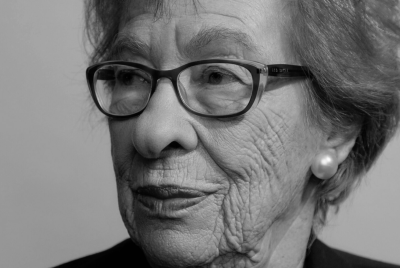UK Woman Booed for Revealing Her Rapists Were White, Not Immigrants — and the Data Backs Her Up

At a 'Protect Our Women' rally led by the right, a UK woman revealed that her rapists were white, not immigrants—and the crowd booed. The reaction exposed the hollowness of the conservatives' supposed advocacy for women: an obsession with the 'migrant rapist' myth so implicit that truth itself is rejected when it doesn't fit the narrative. Yet the data is clear: her claim aligns with reality.
In a sea of sensational headlines and agenda-driven tabloids, fearmongering has reached new politicized heights. At the center of the storm: migrants. The UK's Conservative-leaning public—overwhelmingly white—has long carried an anti-immigrant stance, but in recent months that rhetoric has intensified.
The 'Save the Kingdom' rally stands as a marker of the movement's growing traction. And what fuels these cries from Conservative England? Time and again, politically charged narratives that target migrant communities. Most common among them: the claim that four in ten rape charges involve foreign nationals, with prominent institutions reporting such data. Yet the authenticity of such a statistic is, at best, murky—and at worst, deliberately misleading.
The Myth of the Migrant Rapist
The stereotype of migrants as sexual predators is relentlessly propagated across political and media spheres—a narrative that demands awareness before it embeds itself deeper into public consciousness. The Telegraph, The Sun, Daily Mail, and Daily Express have all circulated the claim that four in ten rape charges involve foreign nationals, despite the absence of robust evidence.
These same tabloids also fixate on individual cases of migrant offenders, while similar crimes committed by white Britons rarely generate comparable headlines. After all, they lack the same clickbait punch. This selective amplification has been echoed by figures such as Nigel Farage, Suella Braverman, and Rishi Sunak, who have often referenced grooming gangs and the supposed perils of multiculturalism.
A grooming survivor was taken off stage and silenced at the “Protect Our Women” rally because she told the crowd her abuser was a middle aged white man, not an immigrant.pic.twitter.com/G1ObeCljrA
— Dilly Hussain (@DillyHussain88) September 28, 2025
While statistics on migration status and rape are limited, one fact is clear: there is no credible evidence that immigration drives higher rates of sexual violence. The Office for National Statistics does not publish data on sexual offences by ethnicity or nationality, meaning the oft-cited '40%' figure has no grounding in ONS findings. Peer-reviewed studies likewise show no correlation between immigration and violent crime (including rape) in the UK.
This includes work by the London School of Economics (2013), the Institute of Labor Economics (2013), and the Oxford Migration Observatory (2020). For context, migrants make up around 37% of London's population, and disproportionately are younger males—demographics that already overrepresent in crime statistics regardless of nationality. Even if 40% of charges were migrant-linked, such a figure would not, on its own, indicate disproportionality. However, no reliable evidence exists to suggest that migrants are more likely to commit rape.
White Britons Are Overrepresented
If anything, white British nationals are overrepresented in rape and sexual offence statistics. Ministry of Justice conviction data (2011–2016, 2018–2023) shows that the majority of those convicted of sexual offences were white. Likewise, child sexual abuse figures from 2023 reveal that 90% of defendants charged were from white ethnic groups.
While high-profile scandals such as the Rotherham or Rochdale cases highlighted overrepresentation of Pakistani-heritage men in certain localities, this was not reflective of national trends. These incidents, though statistically rare, gain symbolic power because they tap into pre-existing fears and are continuously amplified by media narratives, giving them undue prominence in public perception. Instead, the media's disproportionate focus on such cases has served to fuel conservative anti-immigrant rhetoric rather than reflect the broader statistical reality.

Weaponizing rape to vilify immigrants doesn't just endanger migrant communities—it endangers all survivors of sexual violence. The circulation of misleading statistics and sensational reporting fosters implicit bias within the justice system, skewing policing priorities and potentially softening accountability for white offenders.
Survivors, most of them women, should not be selectively heard only when their pain can be twisted into fuel for xenophobia. Dog-whistle narratives that tie immigration to rape do nothing to protect women; they only distract from the real crisis: the UK's systemic failure to prevent sexual violence and deliver justice across all communities.
© Copyright IBTimes 2025. All rights reserved.





















